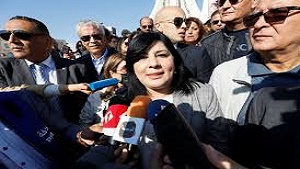On Thursday, Professor Ibbo Mandaza, Director of the Southern African Political and Economic Series (SAPES), led an online policy dialogue that explored the ongoing political crisis in Zimbabwe.
The discussion centred on the power struggles within the ruling Zanu PF party and the push by some factions to extend President Emerson Mnangagwa’s term beyond the constitutional limit.
The 20-30 Movement, a faction within Zanu PF, advocates for a constitutional amendment that would extend his Presidency until 2030. In response, opposition leaders have rallied around Vice President Constantino Chiwenga, positioning him as a challenger to the controversial move. Though Chiwenga has strong support from influential war veterans, similar to Mnangagwa’s backing in 2017,analysts argue that Chiwenga will need to build a broader coalition to effectively counter the push for an extension. Chiwenga has voiced strong opposition to the extension, describing it as a move toward corruption and a violation of Zimbabwe’s constitution.
Mandaza highlighted the deep anxiety felt by Zimbabweans, with many fearing that the political divide could lead to violence. Drawing parallels with the 2017 coup that ousted Robert Mugabe, Mandaza warned that the current tensions could be even more dangerous, as the Mnangagwa faction is unlikely to relinquish power peacefully. This creates the possibility of violent confrontation, a scenario that Zimbabweans are desperately trying to avoid.
While Mnangagwa has publicly declared his intention not to seek a third term, critics believe his actions tell a different story. Mandaza is convinced that Mnangagwa’s real goal is a life presidency, following a long-standing trend in African politics where leaders seek to hold onto power indefinitely. This "monarchical tendency" has been seen in various African nations, and Mandaza suggests that Mnangagwa may be following in the footsteps of other leaders who sought to remain in power beyond their mandate.
The push for Mnangagwa’s extended rule is also driven by a network of political and economic interests that benefit from his leadership. A key factor in maintaining his power is the support of the military, which plays a pivotal role in the political landscape. War veterans, who have strongly opposed the 20-30 Movement, are closely aligned with the military, which raises questions about shifting loyalties within Zimbabwe’s security forces.
Recent public opinion surveys commissioned by Mnangagwa’s administration suggest that the majority of Zimbabweans are opposed to extending his term. A survey conducted by the Central Intelligence Organisation found that 82% of respondents rejected the proposal, with a second survey showing even greater opposition at 94%. Despite this widespread opposition, Mandaza believes the 20-30 Movement will continue to push for an extension, potentially leading to a high-stakes showdown between the pro-extension faction and its critics.
--ChannelAfrica--












